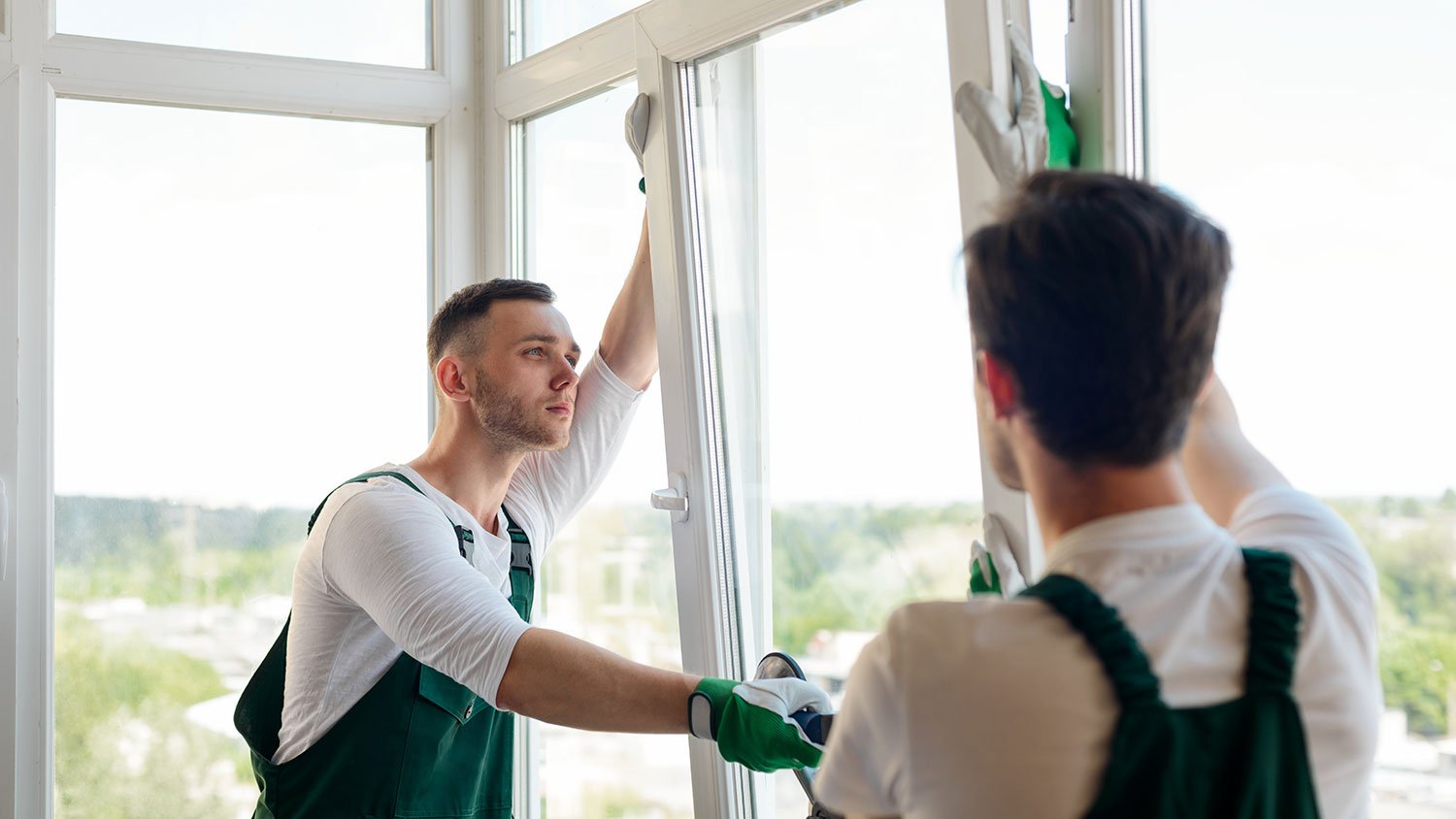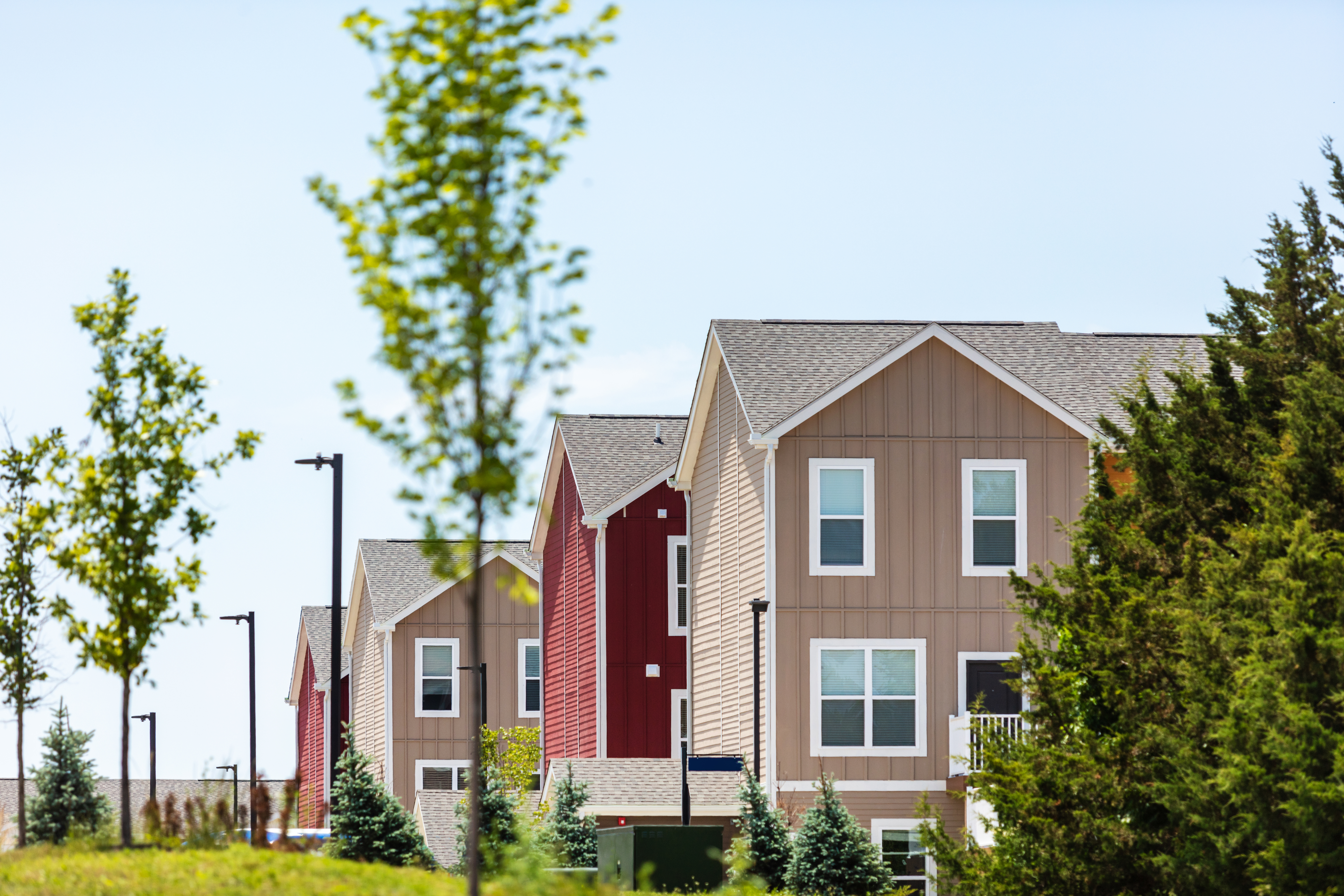
Your window repair cost in Kansas City, Missouri, hinges on several pricing factors, including the type and size of the repair necessary and the window itself.
Window service costs depend on your project and location. Check with a local pro for your specific job.
The number of windows you want to soundproof affect the overall project cost, with five windows costing an average of $4,500 including installation.
Laminated windows cost $10 to $20 per square foot per window and are the most budget-friendly option.
You can expect to pay between $100 and $800 per window on labor costs when installing soundproof windows.
You may need to file a permit in order to install soundproof windows, which averages between $50 and $200 per window.
Soundproof windows cost $900 per window on average, though factors like size, material, and the number of windows you need influence the final price. You can expect to pay between $100 and $1,500 for soundproof windows. Few things are more frustrating than the blaring sound of a car, plane, or your local garage band interrupting your peace and quiet. The good news is that you can cut down that noise pollution by installing soundproof windows.
You can expect to pay $300 to $1,500 to soundproof one window, with an average cost of $900 per window. The total project cost depends on factors such as the method you use to soundproof your windows and if you’re DIYing this project.
I had a kitchen window shatter from it being -20 degrees and was able to call them in to get it inspected quickly. When it was time to install the new glass Mr. Jeremy Glass was had been in communication with me to let me know his ETA, was able to replace the section of broken glass, and was able to re-install the window in the correct way vs how the house flippers before me decided to install it. Mr. Jeremy Glass was friendly, professional, and able to get everything done in less than 30 minutes.
The number of windows you want to soundproof will determine your final project cost. For example, if you need to soundproof five windows in your home, you could expect to pay around $4,500, including installation.
Soundproofing costs also vary based on the size of your window, ranging from $100 to $1,200. Of course, the larger your window size, the more material you’ll need to soundproof it. Also, if you plan on installing a larger window type, you’ll also need to pull a permit.
There are different ways to soundproof windows. Let’s dive into each one below.

The average cost for a double-pane window is $350 to $850. As the name would suggest, double-pane windows have two glass panes, typically with argon, nitrogen, or krypton gas between the panes. While not drastic, there is a noticeable difference in noise reduction when it comes to double-pane versus single-pane windows.
On average, triple-pane windows cost $400 to $3,540 per window to install. They have three glass panes with spacer gases between each and provide more noise reduction than double-pane windows.
When a full window replacement isn’t optimal, you may lean toward window inserts, which have an average cost of $250 to $500 per window and help with soundproofing. Window inserts are when new windows are installed on the interior side of your window in the existing frame, helping to filter more noise.
Laminated windows cost $10 to $20 per square foot per window and consist of two sheets of glass with an interlayer of plastic. They can reduce noise pollution by 75%.

Depending on your location, the actual labor cost you’ll be quoted may be outside of the national average, but most homeowners spend $100 to $800 per window on labor costs. However, upper-level soundproofing windows will have more expensive labor fees than ground-level windows since window professionals may need to use a ladder or access the roof to work on higher floors.
The frame material you’ll need to soundproof your window will also determine how much you can expect to pay for the total project. For instance, the cost of wood window frames is almost twice as much as installing soundproof windows with aluminum or vinyl frames. Depending on which material you choose, you’re looking at $150 to $2,740 in material costs, with vinyl being the most expensive option.
As an added bonus, repairing or replacing your old frames can make your windows more energy efficient, so keep that in mind when selecting your new frame type.
While not everybody will need to get a permit to soundproof windows, those who are altering the structure of their home will. The cost of a window permit is $50 to $200 per window but can vary widely depending on your local regulations.
Installing double- and triple-pane windows requires time, experience, and skills to ensure there aren’t any gaps or openings that can allow air to seep through and decrease its effectiveness. So, this is a job best left to your local soundproofing pros.
Installing soundproof windows is an extensive project that requires expertise. Here are some of the top reasons to work with a pro:
Soundproofing pros ensure windows, frames, and walls aren’t damaged in the installation process.
They have the tools and materials needed to install soundproofing windows safely and effectively.
Working with a pro ensures your project is done accurately and without the need for costly repairs down the line.
Bundling soundproof windows with other services, such as weatherproofing or tinting, can save on overall costs.
If installing new, soundproof windows isn’t a project you’re ready to take on just yet, consider some other options.
While not always pretty to look at, foam plugs are efficient and cost $25 to $75 per window. You can insert them into your window’s frame to create an airtight finish that helps block out noise.
Acoustic caulk, which costs $15 to $100, is a flexible caulk that works as a sound inhibitor. Plus, learning how to caulk windows is quick and easy.
Installing exterior shutters costs an average of $70 to $350 per window. It’s a DIY-friendly method to soundproof windows that will create a visible barrier between the outside world and your home’s interior.
Depending on their thickness, sound-dampening curtains can cost $20 to $400. They help make your space quieter by absorbing sound and reducing echoes.
Soundproofing your windows yourself is the best way to save money on this type of project. You’ll also spend less cash if you choose materials like acoustic caulk or foam plugs rather than paying the cost of a replacement window. Keep in mind, though, that these DIY soundproofing methods won’t be as effective at blocking out noise as a new, professionally installed window.
Discuss the number of panes, the thickness of the glass, and whether there are variations in thickness between the panes.
Ask your pro about the benefits of laminated glass and how that would affect the overall project budget.
Be aware that larger windows may be more prone to sound bleeding and require specific design considerations.
Prepare yourself for unexpected project costs that arise during installation, such as frame repair or material cost increases.
Home is the most important place on earth, which is why Angi has helped more than 150 million homeowners transform their houses into homes they adore. To help homeowners with their next project, Angi provides readers with the most accurate cost data and upholds strict editorial standards. We extensively research project costs to develop the pricing data you see, so you can make the best decisions for you and your home. We rely on reputable sources, including the U.S. Bureau of Labor Statistics, academic journals, market studies, and interviews with industry experts—all to ensure our prices reflect real-world projects.
Want to help us improve our cost data? Send us a recent project quote to [email protected]. Quotes and personal information will not be shared publicly.
From average costs to expert advice, get all the answers you need to get your job done.

Your window repair cost in Kansas City, Missouri, hinges on several pricing factors, including the type and size of the repair necessary and the window itself.

Replacement windows can enhance your home’s curb appeal and improve energy efficiency. Learn about the average window replacement cost in Kansas City.

If you're hoping to add a touch of timeless style to your windows, take a look at the cost of stained glass windows and what affects installation costs.

Window glass needs to be tough to withstand the elements no matter where they are in your home. Here’s how to know which types of window glass to consider for your next project.

Follow these step-by-step instructions to fix a cracked window yourself and avoid a costly replacement using two-part resin and basic tools.

Whether you're embarking on window repairs or a large home renovation, knowing all the parts of a window will make you feel as knowledgeable as the pros.